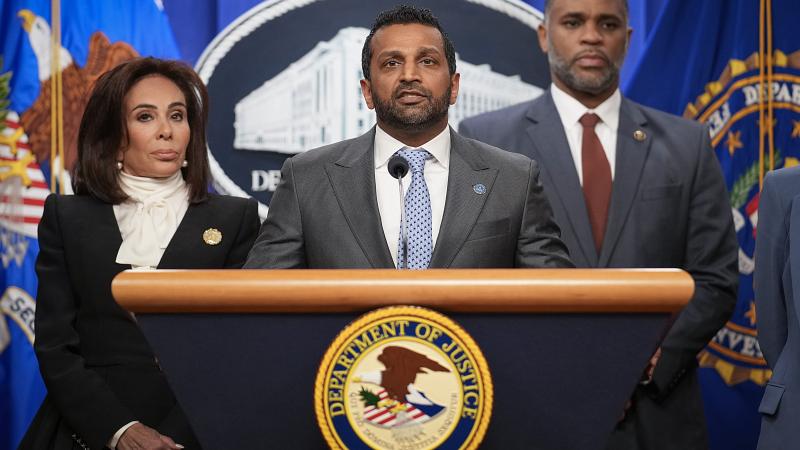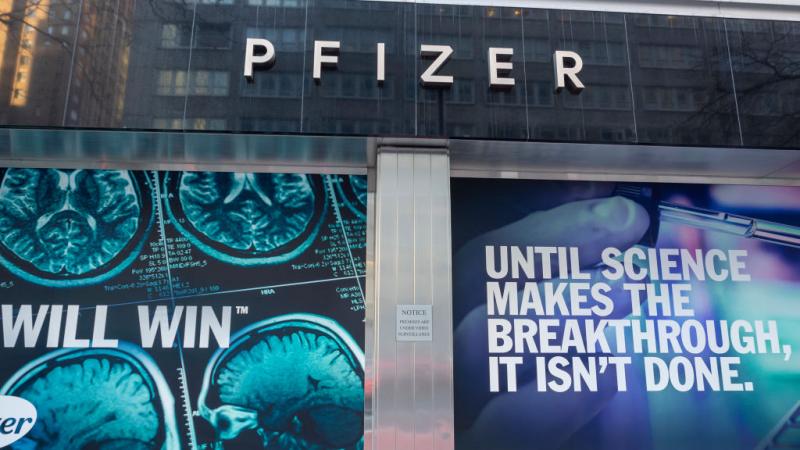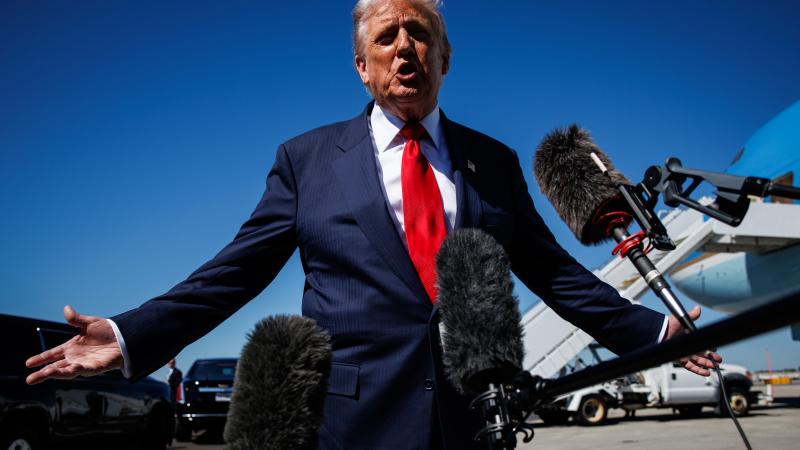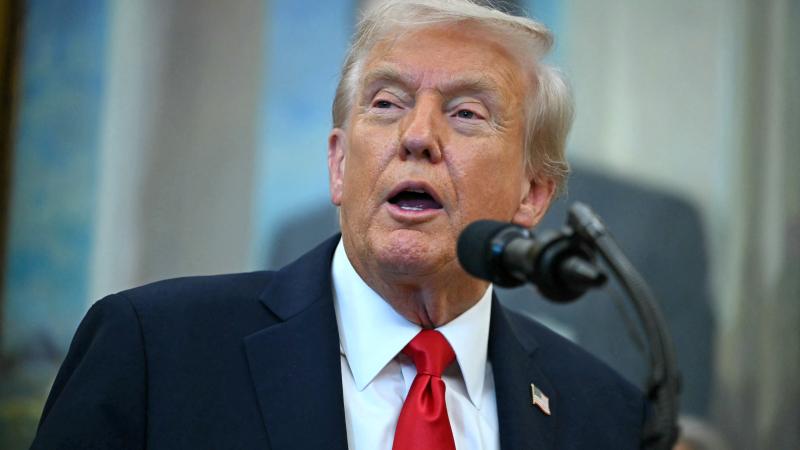Why the George Floyd case may not be open and shut

We examine the issues likely to be brought up by prosecution and defense if the case against the police goes to trial. And we examine infamous cases of alleged police abuse in the past where none of the officers ended up being convicted of crimes.
Full transcript:
Sharyl Attkisson 0:08
Hi everybody, Sharyl Attkisson here. Welcome to another edition of the Sharyl Attkisson podcast on JustTheNews.com, a digital news site dedicated to facts, not spin, and reporting on underreported stories and topics. I hope you'll subscribe to all of our Just the News podcasts, John Solomon Reports and The Pods Honest Truth. And don't forget, you can pre-order my new book Slanted: How the News Media Taught Us to Love Censorship and Hate Journalism.
Sharyl Attkisson 0:36
Today we're going to talk about police abuse cases past and present with some analysis you probably haven't heard, like arguments that I think are likely to be raised at the trial of ex-officer Derek Chauvin. I'm going to tackle the sad case of George Floyd in a little different way than what you may have heard. The four officers who were on the scene, as you may know, have been fired and charged. And they haven't heard anyone come to their defense in any way. Democrats, Republicans, people who may consider themselves neither, they've all roundly and soundly criticized Minneapolis police officer Derek Chauvin, who pinned Floyd down with his knee on Floyd's neck for almost nine minutes. And to hear it talked about, and to read about what's written about it, and to hear the analysis, it really seems like an open and shut case, doesn't it? But like a lot of cases, including many where there's videotaped evidence, when it comes to these police abuse allegations, things often don't turn out like people think they will. Why do I say that? Well, if history is our guide, there's a greater than 50/50 chance that the police officers, the ex-officers, and at least the main officer Chauvin will take this case to trial. Juries frequently side with police and you could see that two ways. Either, they tend to favor law enforcement, maybe to a fault, or there's more to the story when it's actually analyzed in detail by a jury with a full defense provided. So if ex-officer Chauvin's case goes to a jury trial, what is there to decide? You may ask, it's all on videotape. We already have the answers to the questions. Well, here are some issues that the prosecution and the defense are likely to raise. It's not necessarily that any single one of these issues we're going to discuss is the decision-maker or the game-changer for a jury if this goes to trial. But all of these sorts of things will become part of the story that the jury will hear as it puts together a decision what it ought to do. The jury will be told by the defense that George Floyd was resisting arrest, that he was not cooperating. He wasn't getting in the police car. He was saying he wouldn't get in the police car. So that would seem to support the notion that something had to be done. On the other hand, prosecutors will point out that police are professionally trained. They're supposed to come into a situation and, if at all possible, de-escalate it not make it worse, not use force that's greater than what's absolutely necessary. It appears that George Floyd was by all accounts unarmed and maybe he was resisting, but as far as we can see, he doesn't appear to be attacking the officers or posing a personal threat to them. So, using what could be seen as deadly force against somebody who wasn't posing any danger to the officers at the moment, somebody who perhaps was providing just an inconvenience for them. That's a problem, at least in terms of how the prosecution will see it. The defense will point out it's likely if there's a trial, that George Floyd already appeared to be sick. He had supposedly complained to feeling bad complaining he couldn't breathe even before Officer Chauvin pinned him down. Also, the officers called for emergency assistance, while George Floyd was pinned down if this were a willful act of murder, and if the other officers committed some sort of murder as has been suggested, by standing by or watching or not intervening, you would have to believe that they called for help and medical attention while planning to kill George Floyd while being videotaped on camera. On the other hand, as the prosecution will point out, it appears that George Floyd said he couldn't breathe 16 times in a fairly short period of time. The defense will likely say stuff like that happens frequently. Maybe not someone saying they can't breathe 16 times, but it's not terribly unusual. They would say that when you take down a suspect, like some of these officers probably do on a regular basis, that they say they're being hurt or can't breathe or feel sick, or let me go or my hands hurt.
Sharyl Attkisson 5:05
On the other hand, the prosecutors will point out after he stopped talking entirely after George Floyd could have done anything to resist, at least from what we see on video, why stay kneeling on him? It reminds me a little bit of what the judges findings were in the Rodney King case. Remember that one? We're going to address that just a few moments. But there could be something similar here, where a jury determines that part of the time perhaps the officer had a justification or could support some of what he did. But maybe those later moments when he was not breathing or not moving at all, and perhaps not breathing. It's unclear at what point he passed, but maybe it was those final moments that were the problem. The defense will say perhaps, that the officers actually showed, early-on in this call, some patience in terms of an uncooperative suspect they certainly didn't hit him and beat him or shoot him or tased him. They didn't seem to lose their temper. They seem to stay calm during all of this, but the prosecutors will point out, officers know that they are not to pin someone on the neck and make a dangerous situation. I did hear report that they're only to use a neck restraint if someone is actively resisting, but I looked at the policy in Minnesota, and it's not quite so cut and dry. The policy actually says that Minneapolis police officers are authorized to use two types of neck restraints, the conscious neck restraint and the unconscious neck restraint and the conscious neck restraint. The subject, it says, is placed in a neck restraint with the intent to control, not to render the subject unconscious.
Sharyl Attkisson 7:01
And then the unconscious neck restraint. The subject is placed in a neck restraint with the intention of rendering the person unconscious by applying adequate pressure. In other words, there is a move that looks to be authorized by the Minneapolis police department to put someone in a neck restraint on purpose to try to render them unconscious by applying adequate pressure. Was this what Officer Chauvin will say he was doing? Well, when are they allowed to do that under their policy? It says the unconscious neck restraint shall only be applied in the following circumstances and I'll bet this will be parsed if there is a trial. It can be used on a subject who is exhibiting active aggression. In other words, if he's actively aggressive, you may apply the pressure to subdue him into unconsciousness. Or if it's for life saving purposes. I suppose that means if the person is attacking somebody else and you need to subdue them and make them unconscious. Or number three, you can use the unconscious neck restraint. On a subject it says who is exhibiting active resistance in order to gain control of the subject and if lesser attempts to control have been or would likely be ineffective. I would imagine Chauvin's attorney, if there's a trial, would argue that was just the situation they were in, that they had tried to subdue him, or tried to get him in the vehicle and he was uncooperative and they were unsuccessful, and that he was intentionally perhaps applying neck pressure to render him unconscious, because these attempts had failed. Now, I do know from my contacts at police agencies, some of them, I don't think allow this move at all. You know, this is very well written out in the Minneapolis policy the way I read it to you, but it's considered quite a dangerous thing in some police agencies because of past experience. What else will be discussed at a trial? It was reported that George Floyd went into cardiac arrest in the ambulance, meaning, perhaps, was he still alive when he was pinned and unconscious, even though they had said early on, they couldn't find a pulse. It was a police officer, not a medical person. Doesn't excuse it, but does that mean that there is some blurring of the line as to when the death occurred? And what exactly caused it? A full autopsy on George Floyd, the report said that he was testing positive for coronavirus. Will that come up? Well, maybe not because it was apparently from a previous infection he'd had and maybe he was still just testing positive from remnants of it but not sick at the time, but that could come up. Also, according to an autopsy report, Floyd had fentanyl, methamphetamine and cannabinoids in a system when he died. That may be brought up. Also, the autopsy says he had heart disease, hypertension, sickle cell trait. So whether or not you may agree with these points as to whether they could have contributed to his death, it will probably not be hard for the defense to find medical experts to agree that some of those things may have contributed to his death or at least cast some doubt on it. So, that the jury would consider maybe they contributed, maybe there's something to factor in there. Another thing that will factor in, surely the prosecution would mention that officer Derek Chauvin had 17 complaints that have been filed against him. Only two, it looks like he came out with discipline against them. But they were reportedly three shootings and one fatality involved, 17 complaints by a single officer, even a veteran who's been there for a while, seems obviously from a lay person's viewpoint to be quite high. One other officer of the four also had numerous complaints. Tou Thao had six complaints on record against him and I have posted those the Derek Chauvin complaints and a little detail of this at my website, SharylAttkisson.com. But anyway, Tou Thao had six complaints filed against him and was sued in 2017, reportedly, in a brutality suit. So that weighs into the probably the prosecution side. I think one of the most sensitive issues that I've heard and this perhaps factors into the defense is when the Hennepin County attorney Mike Freeman said, quote, "this is by far the fastest we've ever charged a police officer. We have never charged a case in that kind of timeframe." Well, if you're the defense, you point to that and you say that, like it or not, justice is supposed to be blind. Cases are supposed to be handled the same. And will the defense argue that this charge came too hastily and was biased based on pressure, in part, perhaps from well meaning citizens, but in some respects was it from violent mobs. All of these things could factor into a trial. And you begin to see how, when a jury looks at it, they're not just going to watch that piece of videotape that we've been seeing and make a decision, they will have to consider all of these things and more things that we haven't even thought of yet that are likely to come to light. When we come back, we're going to take a look at some sad and infamous cases in the past, and how they really turned out in the end because, I bet you've forgotten about some of these.
Sharyl Attkisson 12:55
We're back and we're going to look at some police abuse cases in the past and how they turned out, even after there was videotape that seemed to be so obvious as to what had happened, they didn't always turn out the way you might remember or the way you might think they should have. In 1991, you might remember that Sergeant Stacy Koon, and officers, Laurence Powell, Timothy Wind and Theodore Briseno. were arrested after their violent arrest and the beating of a construction worker named Rodney King after a high speed chase. This event, this beating of Rodney King, was videotaped back at a time when there weren't all of these videotaped incidents back in 1991. I was working at CNN. I remember when this happened. And this was shocking because there weren't just cell phones with video on every corner. This one lasted one minute and 21 seconds long this beating event. The incidents started, maybe you never heard how it started, when Rodney King fled the California Highway Patrol. they were driving at speeds above 110 miles an hour. King later said that he fled because he was afraid if he was caught as a paroled felon, he might go back to prison because in 1987, he'd been convicted a beating his wife, in '89 he'd been convicted of robbery, assault with a deadly weapon. In the fallout after King's beating, charges against him were dropped. And of course, the police officers came under a lot of scrutiny. A grand jury, first of all, declined to indict 17 officers who ended up as bystanders at the King beating. Kind of reminded me of the Chauvin case officer Chauvin was pinning George Floyd. And at some point some of the officers were also holding him down but at some point they were sort of bystanders as well. And the grand didn't indict those bystanders, but a jury found the four officers who were charged, not guilty. And that prompted riots in the LA area at the time. When that happened, a federal criminal case was pursued. So, at the local level, there was no success in getting the officers found guilty. But a federal case was then pursued sort of a second bite at the apple, a grand jury indicted the officers on a charge of violating King's civil rights. Two of the four officers, not all of them, two of the four officers Koon and Powell were found guilty. And they were sentenced to two and a half years in prison, which was considered a fairly light sentence. Why? The judge in the case said that King's aggressive or threatening behavior was what prompted most of the beating. In other words, the judge found their actions were justified except the final blows. The judge said the final blows were unjustified and criminal because at that point, they didn't need to keep hitting him with their billy clubs, or their nightsticks, or whatever you call those. So that was sort of a shock. Only the last five or seven blows out of more than 50, according to the judge, were unjustified and criminal. So they got two and a half years in prison, and King was awarded $3.8 million. He was seeking $58 million, but he got $3.8 million. Whatever happened to him? I don't know if you followed in the news. Continued sadness, really because over the 10 years after his arrest, he continued to have run ins with the law. Typically he avoided charges. But in addition to multiple DUIs, a DUI related car crash of the more serious incidents his second wife claimed he also beat her. There was a hit and run he took part in involving his wife, he was accused of injuring his teenage daughter and the girl's mother, a different woman. There was an indecent exposure charge, PCP-use. And then on June 17, 2012, Rodney King was found dead in his swimming pool.
Sharyl Attkisson 17:19
The next case I want to mention is that of Trayvon Martin in 2012. Because of the way it turned out, Trayvon Martin was the black 17-year-old who was shot and killed in Sanford, Florida. That was during an encounter with a volunteer neighborhood watch captain, a Hispanic man named George Zimmerman, which means this doesn't fit neatly into the police officer shooting unarmed black suspect box, but you'll see why I'm mentioning it because of how it turned out. It really caught the nation's attention. There was a lot of public pressure for Zimmerman's arrest after people were convinced they knew the whole story. And that it was, in their view an unjustified shooting by someone who had stereotyped a black 17-year-old who'd been wearing a hoodie. But it turns out, Zimmerman told police and the jury that he was fighting for his life, that Trayvon Martin was the aggressor and that he fired at Martin in self-defense. Zimmerman was found not guilty by a Florida jury in 2013 and that prompted demonstrations around the United States. And there was some thought that, maybe, as had happened before the Department of Justice would come in and make a federal case when the locals had not been successful in getting a conviction. But in 2015, the Department of Justice announced it would not seek civil rights charges against Zimmerman for that shooting.
Sharyl Attkisson 18:51
Now, 2014, Michael Brown, Ferguson, Missouri. This was when a police officer fatally shot, an unarmed man, Michael Brown, age 18. Documents show that Wilson fired his gun 12 times, it prompted demonstrations. It was what sparked Hands Up, Don't Shoot because it was said by witnesses that Brown had been raising his hands up at the time he was shot and asking not to be shot. The officer was 28-year-old Darren Wilson. And once again, this seemed to be open and shut. And I was surprised, really, from a journalistic standpoint, that there was very little reporting, if any, as to the other side of the story was sort of as if the witnesses who were saying that Michael Brown had raised his hands that they were taken at face value, with no evidence, really that was the case. And without evidence to the contrary or the other side being considered, and was one of the first times I remember seeing on the news that everybody had made up their mind without having firsthand seen the evidence. As journalists were supposed to wait. You can certainly let other people make accusations and you can talk to witnesses, but you're not supposed to form your own conclusion when you haven't seen any evidence, and you have no evidence firsthand. Well, a grand jury decided not to indict Officer Wilson in the Brown shooting and that really caused a lot of protests nationwide. In the wake of that, Wilson resigned from the Ferguson Police Force, the police chief resigned after criticism in general about racial issues within this police department. Well, as with some of the other cases, some people hoped hereto the Feds would try to charge where the locals had not, that maybe they would charge Officer Wilson with something. But, about a year later, the Obama Justice Department decided not to file federal charges in essence clearing Officer Wilson, saying, believe it or not, it appeared that his account, which had been dismissed by journalists and others, his account that Brown had lunged at him, had reached inside his police vehicle to try to choke him and was coming at him again, when Officer Wilson shot him that that account was true. And the Obama Justice Department said the witnesses who had claimed that Brown had raised his hands and said "don't shoot." The Obama Justice Department said those witnesses were not telling the truth. They were not charged, however, with giving false accounts as damaging as those accounts were. This you could find if you are interested in reading the report for yourself by searching Department of Justice report, and Darren Wilson. It was an 86-page report. There was testimony with something like 40 witnesses and this report was issued on March 4, 2015. And I found that today a lot of people never even heard about it. Although I will say this was widely reported and pretty much every major news outlet again. Department of Justice report, Darren Wilson, you can read about it. He ultimately was never charged, was not found to have done anything wrong. But that case was another one that seemed very open and shut in the very beginning. And by the way, in 2017, the Brown family was paid an undisclosed amount in a wrongful death lawsuit that it had filed, the family, against the city of Ferguson
Sharyl Attkisson 22:40
2014, the Eric Garner case in New York, another sad case. Eric Garner was 43 years old, and an officer named Daniel Pantaleo tackled him to the ground and used a chokehold which had been banned by the department because it could be lead to this very result. Used a chokehold on Eric Garner during arrest, Garner had allegedly been selling cigarettes illegally. And Garner, much like we're hearing now had said I can't breathe, he had asthma. Much like the current case, this incident was recorded on cell phone video. And Garner died later that day. Well, a grand jury decided not to indict Pantaleo after that, after hearing evidence, and protests were held demonstrations were held. And in the end, in 2015, New York settled with Garner's estate and paid nearly $6 million. Once again, there was a thought that maybe the Feds would step in and bring charges where the locals had not, but the Justice Department announced in 2019 that it would not bring federal charges. Nonetheless, Pantaleo was fired by the New York Police Department and his pension was taken away. But he fought back, this was about last fall, and filed a notice that he planned to sue the city over his termination since it was determined he had not committed a crime and was arguing that he had not done anything wrong.
Sharyl Attkisson 24:22
And the last case that I want to talk about that didn't turn out the way a lot of people thought it would, is that of Freddie Gray in Baltimore in 2015. Police arrested Gray who was 25 years old, after they found him with a knife in his pocket. Supposedly he was known to the police, bad part of town, lots of things going on. But something happened in the prison transport van. And once he arrived at the police station after being transported in the van, Gray was sent to a trauma unit. He had severe spinal injury, he went into a coma, and he died in about a week. There were six officers involved in the arrest, who were implicated and they were of various races. And Baltimore Police, meantime, acknowledged that he should have gotten better medical care after his arrest and that he had not been buckled into a seatbelt when he was being transported. There were allegations that the driver of the van gave him what some call a rough ride on purpose. There were protests, there were riots. And the Baltimore grand jury indicted the six officers, again of different races, in the death of Freddie Gray, and they faced all kinds of charges. The most severe charge was second degree, depraved heart murder. And that was the charge given to the driver of the van. So what happened, one-by-one, there was a first trial: ended in a deadlock in a mistrial. There was a second trial: officer found not guilty. A third trial: not guilty of all charges, a fourth trial: not guilty of all charges. After that the prosecutors dropped the charges against the three remaining officers. And by the way, the jurors, again were of different races. There were blacks, whites and others on the juries that were listening to the details and deciding not to find these officers guilty. So, meantime, the Justice Department investigates, and even though the officers were found not guilty, the Justice Department said that the police department in Baltimore has sort of a systemic problem engaging in unconstitutional practices that led to even though very much African American-run community was still disproportionately stopping and searching and arresting African Americans. So that happened but then, again, there was hope on the part of some that the feds would come in and do their own charges after the locals failed to get convictions against the police officers involved. But in 2017, the Justice Department announced it would not pursue federal civil rights charges against the six Baltimore police officers.
Sharyl Attkisson 27:30
So think about it. I've just described some of the most high profile cases of police abuse in our time, or alleged police abuse cases that sparked protests, in some cases, that triggered reforms of police agencies and abuses that had been discovered. In some cases that triggered riots. But really, none of them turned out like people thought they would in the beginning, open and shut. In none of the instances I described did the juries decide that the officers were guilty of a crime. And then the Feds came in, under President Obama in some instances, and came up with similar conclusions, that the officers had done nothing criminal. As someone who wasn't on the jury or investigating, I'm not saying what should have been, you are free to do so and draw your own conclusions about all of these cases. And I'm certainly not predicting what's going to be the outcome in this instance, at hand. The case against the officers who encountered George Floyd, well, I'm just saying this could be a long haul if history is our guide. It could be full of twists and turns. Symbolically speaking, the jury's still out in terms of what will and should happen in the justice system, in the sad case of George Floyd.
Sharyl Attkisson 28:57
I hope you enjoy today's podcast. And check out JusttheNews.com. Don't forget to subscribe to the Sharyl Attkisson podcast and my other podcast Full Measure After Hours and all the Just the News podcasts. I hope you'll share this podcast, leave a good review. All of that helps. And if you like my podcasts, you will love my new book that's coming out. You can pre-order it now. It's called Slanted: How the News Media Taught Us to Love Censorship and Hate Journalism. Support independent journalism and pre-order Slanted anywhere. Do your own research. Make up your own mind. Think for yourself.













